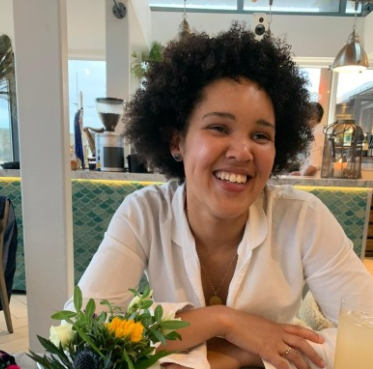Farewell to current Women's Officer

When I was elected to the role of JCR Women's Officer in 2021, I was so gratified to be able to represent the undergraduate women of the College. Immediately following this excitement, we encountered a surge in COVID-19 cases and entered another lockdown. Thus, my first term as Women's Officer was spent at home.
A typical experience would look something like attending meetings with the St John's Women's Network over Zoom, completing a student reimbursement, followed by the daily walk traipsing through my well-worn streets and pathways. This was a time when I felt inevitably detached from the JCR Women community. One of my key roles, which I was unable to carry out from my home in Yorkshire, was to distribute free sanitary products to the JCR community. Not wishing anyone to be at a financial disadvantage, I introduced a scheme to reimburse reusable sanitary products. This was a scheme I saw as integral during Hilary at Home, but happily, which continues.
The particular role ascribed to myself as Women's Officer of providing sanitary products to the JCR sparked in me a critical question as to the progressiveness of the position. Sanitary products are evidently not only needed by those who identify as women, they are a biological necessity of many and do not correspond to gender in the slightest. I distributed sanitary products to people with periods, not solely women, but this created a strange disjunct with the title of my role.
I was led to consider this further with the language I would use for events or schemes I was promoting. The standard approach of the College had seemed to be inclusive language in the form of contextualizing the word 'women'. In promoting an event, women* would be written as such, with an asterisk which would refer to a footnote which read:
'We use an inclusive definition of "women" that includes anyone who identifies partly or wholly as a woman and/or transfeminine.'
The clarification is useful in stating the inclusivity of our College, but it is not without its issues and weaknesses. As a cisgender woman, I wanted to gain the opinions of non-binary and trans people. After speaking to members of the non-binary and trans community from St John's and at other colleges, I came to realise that the way we use the term 'woman' is still potentially alienating. Through beginning our clarification of our inclusivity with the phraseology 'we use an inclusive definition of the term woman' we unwittingly insinuate that this is one among several definitions. Whereas, the reality is that the inclusiveness of the term women should not be up for debate.
Indeed, those who identified as non-binary raised the issue of this linguistic clarification as potentially lumping them in and conflating them with women, a possibly distressing and misgendering experience. How to remedy this complex and nuanced issue? I spoke to fellow Women's Officers, Trans reps and non-binary and trans people to garner their insight. The result I was left with was to utilise the terms 'women and gender minorities' when promoting events. Although this is a step in the right direction, it does not reconcile the jarring disjunct of the role's title to the gender progressiveness we aim to achieve as a JCR, and I hope, as a College.
After listening to those from gender minorities, it became clear that the best solution would be a shift from 'Women's Officer' to 'Gender Equality Officer' as is the case at many other colleges. This is, regrettably, a change I did not manage to make during my time in the role - but is one that I hope one of my successors will consider and endorse.
The lesson I have taken most from this incredible experience has been that listening to those with difference experiences from oneself, showing openness and empathy, is the most productive and fulfilling way to service the many intersecting communities within our College. This is an approach I have faith we will continue to employ with enthusiasm and energy.
Check for updates on the Women's Network Facebook Page